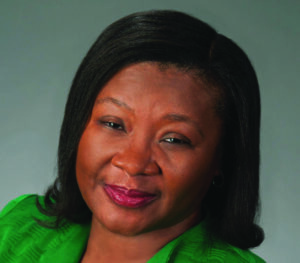The first consequential election since Trump won last fall is being held right in our own backyard. It is the special U.S. Congressional election in which early voting got underway this week in advance of a Sept. 9 election day in the 11th Congressional District of Virginia, a district just to the west of Falls Church that juts right up against the City in some areas.
The election follows the death of long-time Congressman Gerry Connolly on May 11, who represented that district from 2009 on and oversaw its shift from moderately Republican to decidedly Democratic over the last 16 years.
Now, the next U.S. representative from that area will either be Democrat James Walkinshaw, Connolly’s long-time aid and collaborator, now an effective Fairfax County Supervisor from the Braddock District, or Republican Stewart Whitson, the senior director of Federal Affairs at the conservative D.C.-based Foundation for Government Accountability, credited with achieving major cuts in the federal SNAP (food stamp) program.
Walkinshaw and Whitson squared off in a head-to-head debate this Monday hosted by the Reston Civic Association and held at the Reston Community Center in front of about 300 noisy observers.
If the debate were to be described as feisty or raucous, it would only be because the audience was, not so much the candidates. Despite repeated pleas from the moderator to desist, a dozen or so backers of Whitson continued to rile the audience with loud insults and objections to Walkinshaw’s remarks, in particular.
Walkinshaw’s supporters in the audience sought to match the noise with loud applause and cheers for their candidate when he scored strong points. The pro-Whitson noise-makers were particularly vocal when Walkinshaw tied his opponent to President Trump, and pro-Walkinshaw backers were loudest when their candidate championed the plight of federal workers and contractors who are being laid off in record numbers by Trump.
Most media coverage of the race is suggesting that Walkinshaw is the strong favorite because of Connolly’s success in turning the district “blue,” winning his last election with a 65 percentage point majority. But while Walkinshaw demonstrated a dauntless and straightforward knowledge and ability to articulate the issues, his new opponent Whitson proved a daunting adversary, with well-spoken arguments for mostly traditional Republican talking points about taxation and regulation.
This race should, by no means, be taken lightly. Anti-government-status-quo sentiment is running high, especially in a climate of growing unemployment, and would trend against Walkinshaw, who despite his own considerable qualifications, paints himself by his long association with Connolly and now his work as an elected member of the Fairfax Board of Supervisors as just that.
It comes as the U.S. House holds a slim majority for the Republicans, 220 to 213 with the deaths of two Democrats beside Connolly, Rep. Raul Grijalva of Arizons and Syvester Turner of Texas. Democrats are counting on winning control of the House next year on the strength of unpopular Trump policies, and this 11th District race will be vital for that (the winner will face another election in the fall of 2026).
In Monday’s debate, Walkinshaw stressed continuity—promising to carry forward Connolly’s legacy and leverage his legislative experience to counter what he describes as destructive Trump-aligned policies. Whitson, an Army veteran and former FBI agent, did not mention his role with the Foundation for Government Accountability in his self-identifying remarks.
While some in the audience jeered when Walkinshaw frequently linked his opponent to Trumpian policies, Whitson took positions over and over that were in fact in agreement with the Trump agenda, including fiscal restraint and immigration enforcement, criticizing Democratic spending and advocating for stricter Medicaid eligibility.
Walkinshaw rebutted support for sweeping tax and spending cuts, warning that over 320,000 Virginians risk losing healthcare coverage under the mega-bill that passed last week. He vowed to oppose it in Congress.
Whitson sharpened his critique: “There’s a spending problem,” he argued, contending the legislation hasn’t reduced Medicaid cuts and wrongly attributed coverage losses to immigration fraud.
Walkinshaw leaned into his establishment credentials and endorsements—including Connolly’s posthumous support— to underscore his readiness to represent a district dominated by federal employees.
Whitson portrayed himself as the underdog, promising to “shake things up” and hold Washington accountable, though facing long odds in this heavily Democratic district.
In the audience Q&A, Walkinshaw was often applauded for nuance on health care and economic stability. Whitson touted fiscal responsibility and immigration.
Wallkinshaw spoke directly to Whitson on some occasions, saying to him at one point that the Trump administration “is indiscriminately firing the very people you say you have sympathy for, and you could do something. You could start to denounce it. But you won’t do that. Because first and foremost, you are Donald Trump’s ally.”
Walkinshaw said he worried about the downstream effects of federal cuts on local businesses, and several times pointed to federal investments in local priorities, including transportation projects and low-income schools.
Whitson walked a finer line, emphasizing his good experiences with his federal colleagues during his time in the FBI and calling federal workers “hardworking,” but not condemning the federal cuts. Whitson expressed sympathy for laid off federal workers, but said the solution is to “find you other economic opportunities” that would come from deregulation and lower taxes.
Whitson said he’d put forward the Regulations from the Executive In Need of Scrutiny (REINS) Act, which would prevent federal agencies from developing rules that come with a price tag of $100 million or more without the approval of Congress. He also said he’d support rewarding federal agencies that do not spend all of their congressionally-appropriated budgets by the end of the fiscal year.
Walkinshaw said he’d support legislation to abolish the so-called Department of Government Efficiency, or DOGE.
On Social Security, Whitson attacked Democrats for “pushing welfare onto healthy adults and creating dependency,” resulting in fewer employed people paying into the Social Security program and more “able-bodied adults that are sitting on the couch playing video games.”
“Stewart, I recommend you talk to some of the thousands of federal employees who are out of work and ask them if they’re sitting on the sidelines or playing video games,” Walkinshaw replied. “That is an outrageous thing to say in a community that is suffering from job loss right now.”
Walkinshaw offered two proposals for keeping Social Security afloat: requiring the wealthiest Americans to pay more to fund the program, and welcoming immigrants to work in the U.S. and pay into the program.
“Rounding them up, scaring them, convincing them to self-deport is self-defeating when it comes to the solvency of Social Security,” he said. He said recent escalations in immigration enforcement in Northern Virginia had not been focused on people with criminal records.
Whitson focused his comments about immigration on border security, citing his time with an FBI SWAT tea











